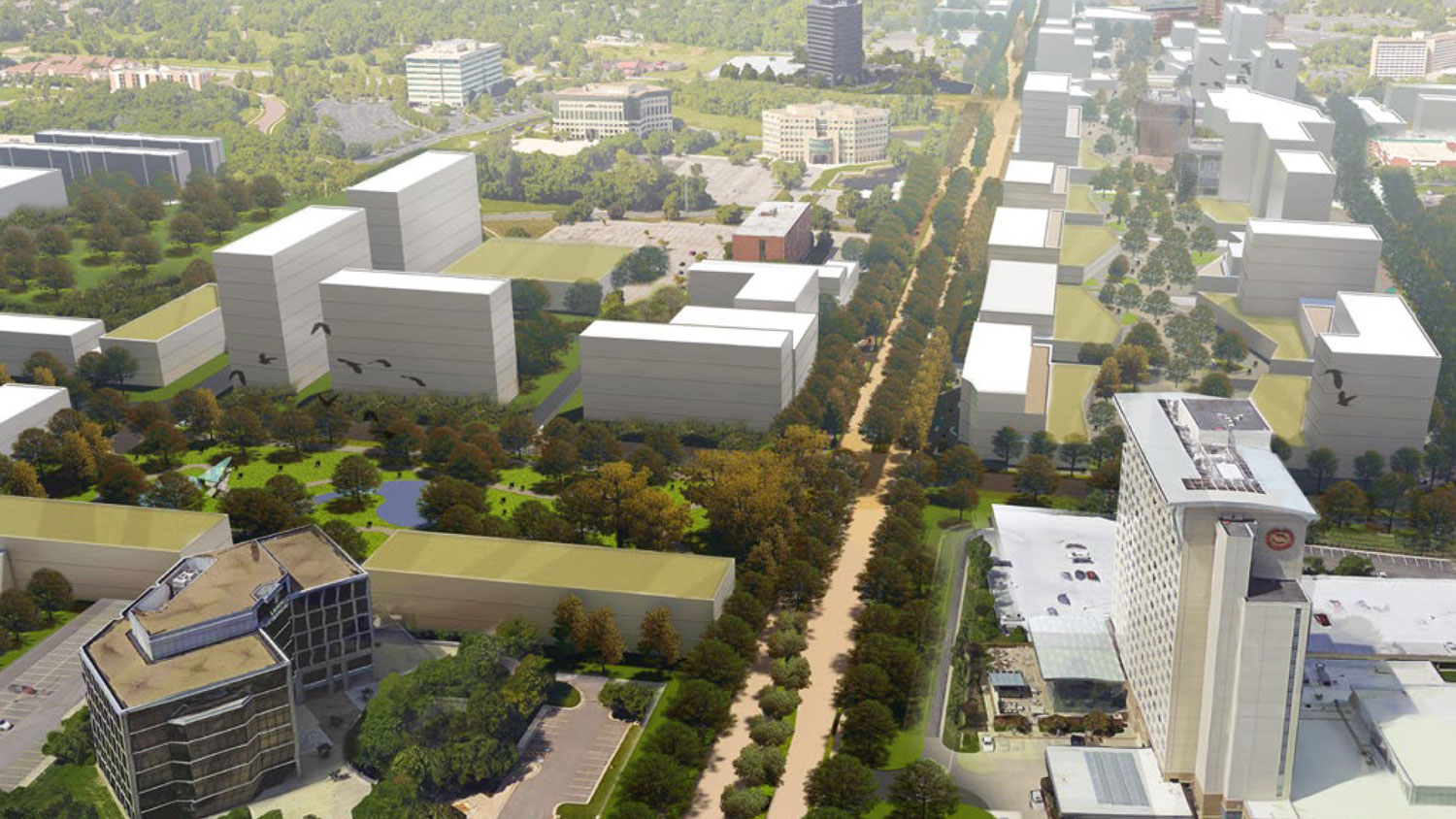
Exciting changes are on the horizon for the OP Central area of College and Metcalf. Following a year-long mobility study, the Mid-America Regional Council approved an allocation of $1.35 million toward making the area more walkable, vibrant and engaging for residents, workers and visitors.
The mobility study began with a series of public meetings during the summer and fall of 2021. Community members asked questions and shared priorities and preferences about possible improvements. The study also included visioning sessions, focus groups and a community workforce survey. Participants included City staff, a steering committee, residents, a workplace group and a hospitality group. The study was completed with funding from the Mid-America Regional Council’s Planning Sustainable Places program.
Mobility challenges identified in the OP Central district included long distances between buildings, large parking lots, expansive lawns and busy streets, creating obstacles for people to move about the area on foot, bike, wheelchair and other non-vehicular means of travel.
Enhancing the mobility of the area will increase visitors and event business, create walkable places for new residents, connect retail and office centers and provide access and amenities for those who work in the area. Improvements under consideration include a linear park with a multi-use path, common spaces, intersection improvements to enhance walking and biking options and wayfinding signage.
OP Central is Overland Park’s largest concentration of office employment and is a regional activity center for the Kansas City metropolitan area. More than 30,000 jobs are located within a 1-mile radius of the intersection of College and Metcalf, representing approximately 30 percent of all primary jobs within the City of Overland Park. The area is also a major destination for visitors with the Overland Park Convention Center, eight hotels and major adjacent retail centers nearby.
The project is currently under consideration for construction between 2026-2028 with a total cost of $4 million. Learn more about the OP Central project, including study results, public engagement and project plans at opkansas.org.
